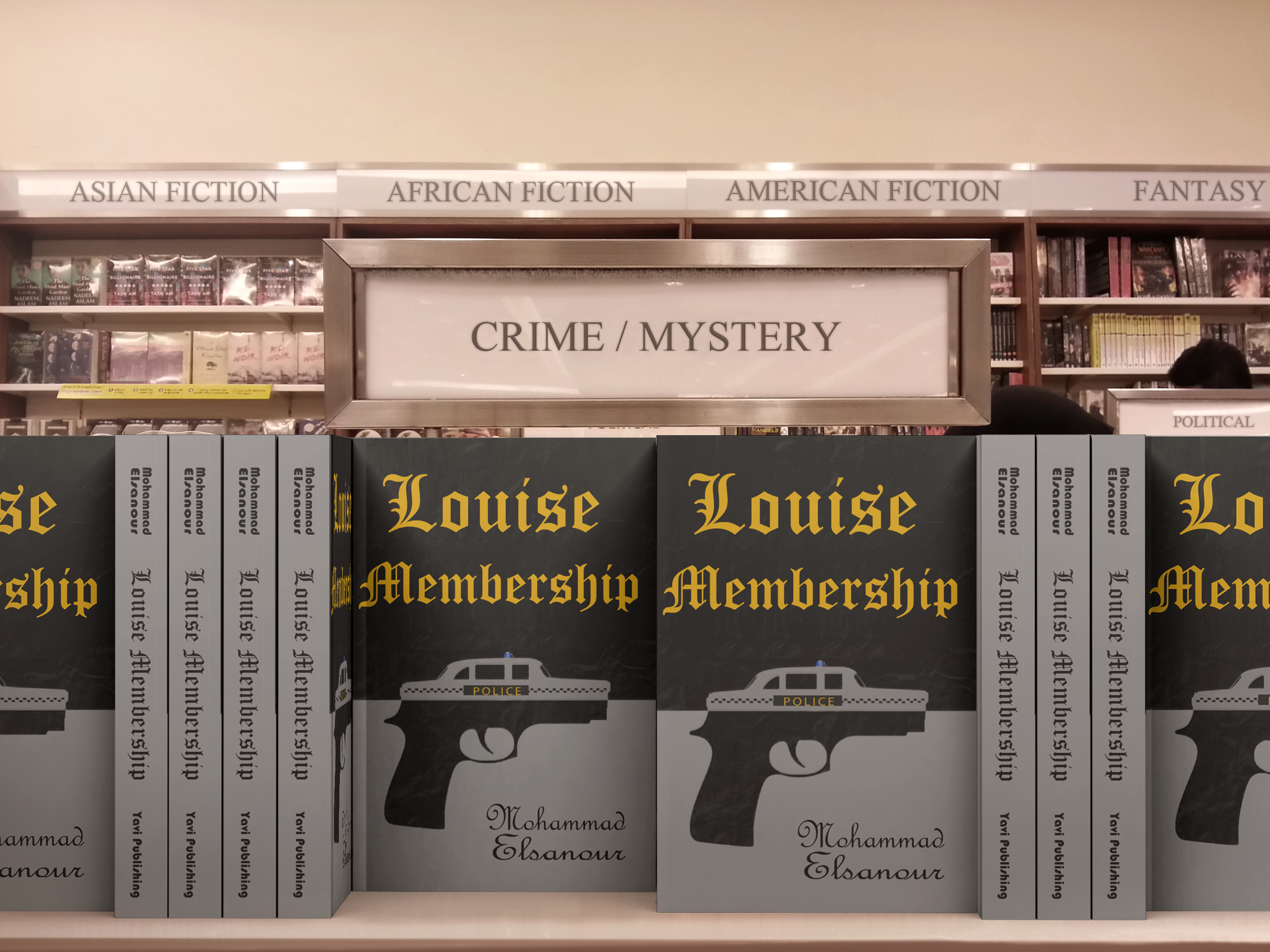Mohammad Elsanour’s crime fiction and mystery novel, Louise Membership, is a poignant and clever portrayal of the real face of drug companies. The novel begins with the shooting of Amir’s uncle, an up-and-coming drug dealer who is a Louise member; Louise’s owners select their members with great accuracy.
The book talks about a new way to spread drugs in an internationally regulated and legal manner and under international control in very smart ways and the protagonist, Amir, gets involved against one of those gangs after being selected by that group. The events of the novel take place with a unique suspense among the members, their upbringing, and the disagreements that take place between them, as well as exploring how a person may sometimes be forced to engage in evil and even plan for it, but common sense ends up in moderation in the path of good and correcting the mistakes of the past.
The Crime Prize in fiction was awarded to Mohammad Elsanour, a renowned Egyptian author, for this novel. The committee described the book as “an exquisitely crafted novel that carries the reader on an adventuresome journey into the depths of pharmaceutical and drug companies and into the most intimate spaces of the human heart.”
Announcing the award in Cairo, the Egyptian author said that “Sometimes we are forced to be involved in committing crimes because of the threat facing our families, the people we love, or even us, but the most important thing is what will happen next, will repentance will be the satisfactory solution for the people who have been hurt by these crimes, and is there compensation that satisfies everyone for Lives that are lost!”.
The selection of Dr. Elsanour was greeted with an outpouring of enthusiasm by the Egyptian Ministry of Interior, because his book is considered a source of inspiration for many officers working in the new smuggling and drug-trafficking operations in the Middle East.
Elsanour, widely beloved for his spare and psychologically astute fiction, appeared to be more of a purely literary choice. He revolutionized the architecture of crime-fiction novel, often beginning a novel in an unexpected place then moving backward or forward in time, bringing modesty and a subtle wit to his work that admirers often traced to his background growing up in the Gulf.
Elsanour, who lives in Abu Dhabi, eventually found out that he had won while visiting his family in Cairo, who woke him with the news. Sounding a bit groggy, and at times emotional, he spoke with the Egyptian Broadcasting Corporation just a few minutes later by telephone.
“It just seems very beautiful and so wonderful,” he said. “It seems just such a splendid a thing to happen, I can’t describe it. It’s more than I can say.”
He later added, “I would really hope this would make people see the novel as an important art, not just something you play around with.”
The prize is awarded at the Cairo Book Fair by the Egyptian Ministry of Interior to authors with crime and fiction novels every year, but this year’s Cairo Book Fair, which normally takes place in January, has been postponed due to the spread of the coronavirus pandemic.
Image taken by the author

